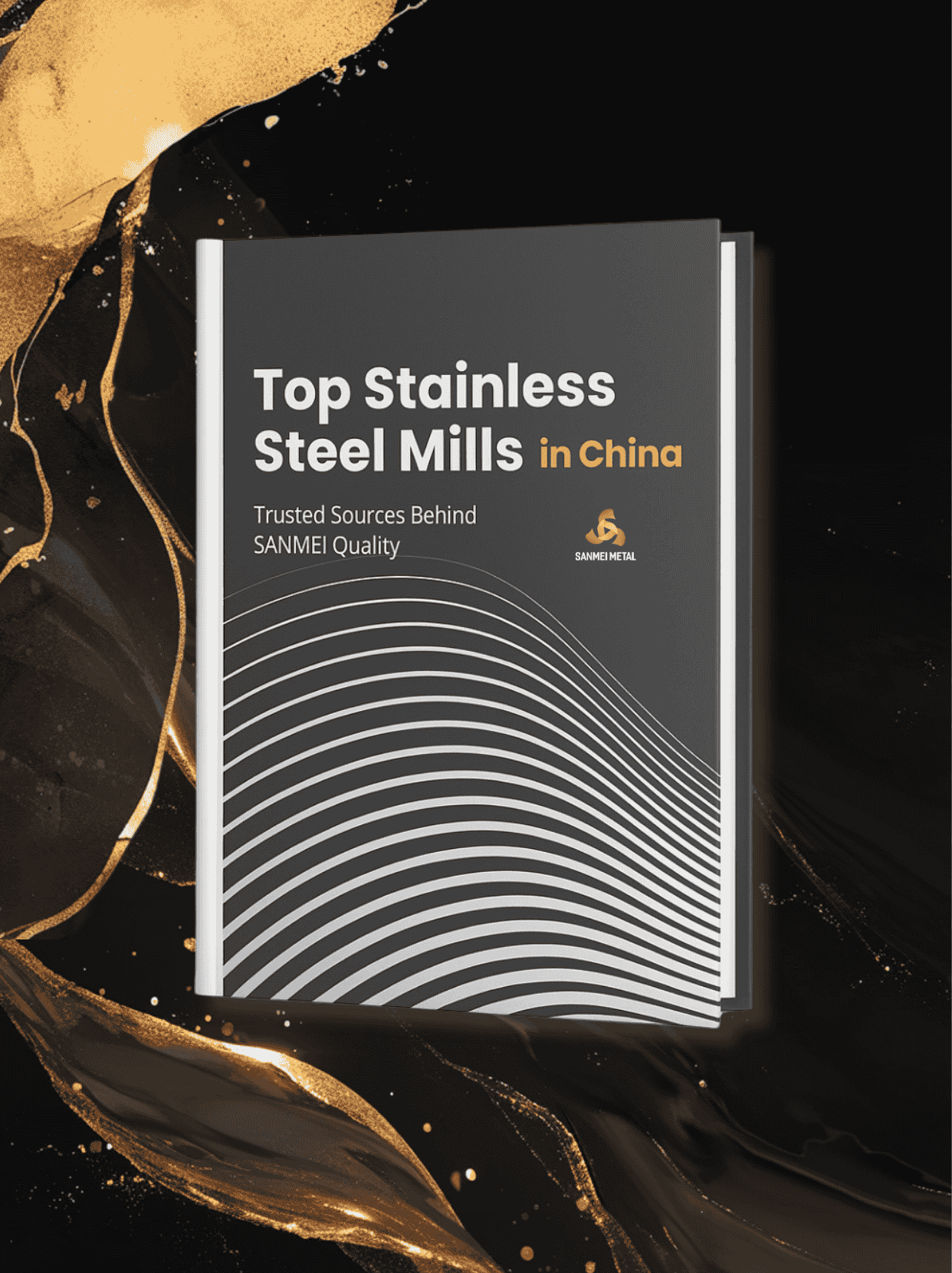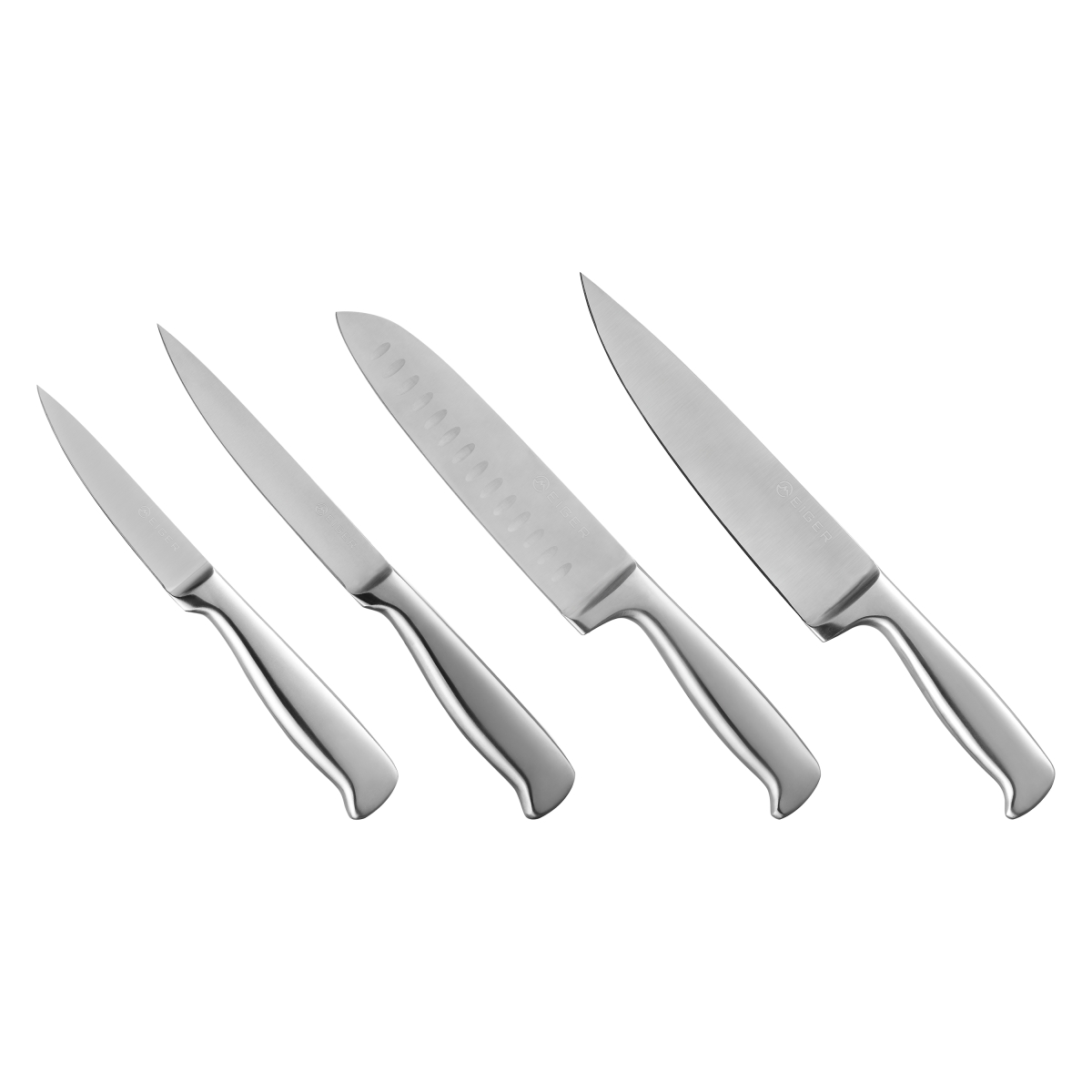
Obtén tu GRATIS Acceso: Expediente de la planta siderúrgica #1 de China
Orientado al comprador: Buscar molinos que se ajusten a las necesidades del cliente según el grado, el acabado, el ancho, el espesor y la aplicación.
BAOUWUTsingshanLiscoTisco


Excelente resistencia a la corrosión para prevenir la contaminación

No reactividad con alimentos ácidos, salados o picantes

Superficie lisa y limpiable para estándares de higiene

Durabilidad a altas temperaturas para entornos de cocina
Los equipos de cocina de acero inoxidable, como ollas, tostadoras y parrillas, deben ser, ante todo, atóxicos y seguros para el contacto con alimentos. Además, factores de rendimiento como la resistencia a la corrosión, la tolerancia a altas temperaturas y la facilidad de limpieza y mantenimiento son cruciales para obtener utensilios de cocina de alta calidad.
Los grados de acero inoxidable 304, 304L, 316, 316L, 321, 309S y 310S son conocidos por mantener un excelente rendimiento en entornos de alta temperatura y resistir el óxido, lo que los hace ideales para la fabricación de diversos equipos de cocina.
Los muebles y electrodomésticos de cocina de acero inoxidable no solo deben cumplir con los requisitos de resistencia a la corrosión y alta resistencia, sino también ser estéticamente agradables como muebles de exhibición. Además, la facilidad de limpieza y mantenimiento es esencial en un ambiente de cocina con alta carga de grasa.
Los grados de acero inoxidable 304, 304L, 409, 430, 2205, 2207, 436, 439 y 441 poseen una excelente resistencia a la corrosión, propiedades mecánicas y pueden mantener una apariencia atractiva, lo que los hace adecuados para la fabricación de muebles y electrodomésticos de cocina.
El acero inoxidable utilizado en recipientes y utensilios para almacenar alimentos no debe reaccionar con los alimentos. Además, estos recipientes requieren una alta resistencia a la corrosión debido a los aditivos presentes en algunos alimentos. Su fácil limpieza también es una ventaja significativa de estos materiales.
El acero inoxidable utilizado en cubertería y vasos debe tener buena dureza y resistencia al desgaste, especialmente en el caso de los cuchillos, donde la dureza y la resistencia son esenciales. Para el consumidor moderno, los cubiertos y vasos no son solo recipientes, sino también artículos decorativos que realzan el atractivo estético de su colección.
| Calificación | Características principales y aplicación |
|---|---|
| Serie 201 (J1~J4) | Contenedores rentables para contacto con alimentos a corto plazo |
| 304 / 304L | Estándar industrial para uso alimentario, resistente a la corrosión y al calor. |
| 316 / 316L | Alto rendimiento para el procesamiento de ácidos, salados y mariscos. |
| 321 / 309S / 310S | Resistente a altas temperaturas, perfecto para hornos industriales y barbacoas. |
| 409L / 410 / 410S | Durable, resistente al desgaste, ideal para cuchillos y cubiertos. |
| 420J1 / 420J2 | Alta dureza para herramientas y utensilios de corte. |
| 430 / 436 / 439 / 441 | Buena formabilidad y rentabilidad, ampliamente utilizado en cocinas domésticas. |
| 2205 / 2207 | Aceros dúplex para entornos de procesamiento hostiles, excelente resistencia y resistencia a la corrosión. |
En SANMEI, ofrecemos acero inoxidable de grado alimenticio certificado en forma de bobina y lámina, con acabados de superficie como 2B, BA, No.4, HL y pulido espejo, ideal para equipos de cocina, electrodomésticos y líneas de procesamiento de alimentos.
Pero ¿cómo saber si lo que compras es realmente seguro para los alimentos? En mercados como China, donde los estándares de los materiales varían, es fundamental verificar el origen. 👉 ¿El acero inoxidable de calidad alimentaria que compras en China es realmente de calidad alimentaria?
Lea nuestra guía para saber qué verificar y cómo elegir el proveedor adecuado.
Sede:
Centro de Creación, n.º 142, calle Yuhe, pueblo de Lecong, distrito de Shunde, ciudad de Foshan, provincia de Guangdong, China. 528315
Fábrica: Ciudad Logística de Liyuan, Pueblo de Chencun, Distrito de Shunde, Ciudad de Foshan, Provincia de Guangdong, China. 528313
Base de apoyo local de Australia: (Yatala, QLD) – Próximamente en 2026